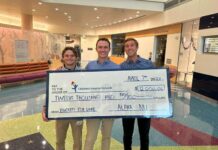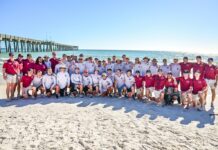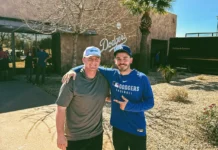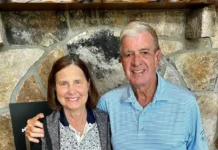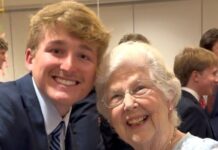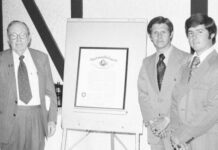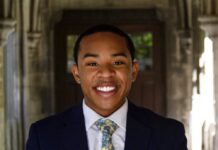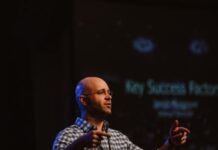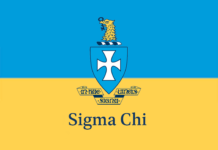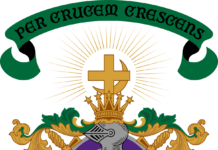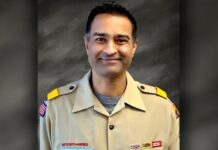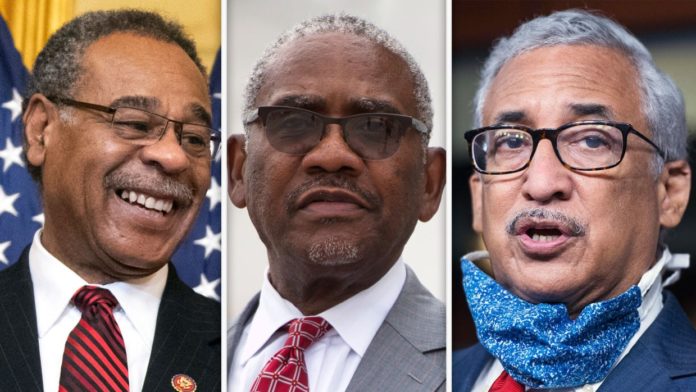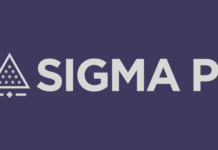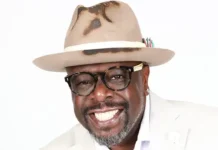Fraternity ties run deep in politics and public service, lawmakers say
A couple of years ago, Rep. Robert “Bobby” C. Scott got together with some friends from college, and the topic of education came up.
He looked around the circle and saw a professor, a local school board member, an early childhood education advocate, and a scholarship foundation founder.
“You can imagine the chair of the Education and Labor Committee was just delighted to be involved in that conversation,” he says, referring to himself. “How often do you get a group like that, and it’s just all of your fraternity brothers?”
For Scott, that’s the beauty of Alpha Phi Alpha. Half a century after he pledged at Harvard, the congressman still learns from his line brothers.
“Education, education, education, education” is how Rep. Gregory W. Meeks sums up the civic engagement projects for which the fraternity is known. Like Scott, he’s one of seven Alphas who currently sit in Congress.
Rep. Emanuel Cleaver II is another. “Out on what we used to call ‘the cut,’ which is out on the lawn, you were going to find Alphas together,” he says of his time at Prairie View A&M University. Now he’s watching Sen. Kamala Harris, a member of sister sorority Alpha Kappa Alpha, run for vice president.
In separate interviews over the past month, we asked Scott, Meeks and Cleaver about the legacy and future of the fraternity, as Harris’ bid keeps it in the national spotlight.
“It should be of no surprise that the nation’s first Black fraternity started on a white university campus,” Cleaver says of its founding at Cornell University. “If you can imagine how segregated we are in 2020, imagine in 1906 what those Black students were going through. They couldn’t be involved with the white fraternities.”
An ordained Methodist minister, Cleaver describes the emergence of Alphas on those early college campuses as “social salvation” — a philosophy of lifting each other up that continues today.
Rep. Robert C. Scott, D-Va.
I pledged in college. My father was a member of another fraternity, and my mother was a member of a sorority, so I was inclined to join.
I checked out several of the local chapters and the thing that stuck out about the Alphas was they made it clear that your No. 1 priority was to get a good education. Some of the others did not make it as clear.
I was also impressed with the prominent members — Martin Luther King Jr., Thurgood Marshall, Whitney Young, Andy Young, Adam Clayton Powell. I went to college in Massachusetts, so Ed Brooke was a very prominent name in the fraternity.
[An Alpha] who happened to be a line brother of Martin Luther King was working in the Boston mayor’s office [in the late 1960s]. He recruited the brothers to be on, I don’t know what they called it, but it was rumor suppression. There were riots breaking out from time to time, and they wanted people to be able to address rumors. I remember one rumor we checked out was that someone had been beaten and was in the emergency room at Boston City Hospital. We went to the hospital, and nobody had heard of anybody in any such trauma. So we reported back and we killed the rumor. As a matter of fact, Kevin White’s young assistant was also working there, a gentleman of the name of Barney Frank. So that’s where I met Barney.
Since then, programs of the fraternity have been very important in my life’s work as chair of the Education Committee and as an elected official.
One that started almost 100 years ago is “A Voteless People Is a Hopeless People.” Each chapter is expected to have some election-oriented program going on, like voter registration or candidate forums.
Another major program is “Go to High School, Go to College.” Just a high school education is nice, but it’s not sufficient to get the best jobs. The fraternity figured that out a long time ago.
Recently, I was on a call with members of the fraternity who formed a separate organization [in June]. They formed a political action committee, Alpha PAC, to get more active in the election process.
This cycle, Cameron Webb is running in the 5th District in Virginia. He’s on the Democratic Red to Blue list. And Rev. [Raphael] Warnock in Georgia, running for the U.S. Senate, we’re all in the fraternity.
It’s a special bond. You find out who the brothers are [in politics and in Congress]. Everybody knows that Cameron Webb is running. So if he’s elected, he’ll come right in.
Everybody likes to be the first African American this or that, but when I talk to Alpha groups, I say I’m not the first African American to be chair of the Committee on Education and Labor. That honor goes to Alpha brother Adam Clayton Powell Jr. For some reason, his picture wasn’t up in the committee room [on Capitol Hill]. We took care of that last year.
Look at the legislation that passed while he was chair. I mean, it was [the 1960s], so Title Seven, Title Six, of the Civil Rights Act. All of the war on poverty legislation involving education, like the Elementary and Secondary Education Act (Title One, funding in low-income areas) and the Higher Education Act (the Pell Grants and student loans).
All of that came through his committee. A lot of our work today is reauthorizing the work done by Alpha brother Adam Clayton Powell.
Rep. Emanuel Cleaver II, D-Mo.
During rush week, when they threw in that Martin Luther King Jr. was an Alpha, that pretty much did it for me. I was in.
We did everything together. In the spring, we had Splash Day, where the colleges in the Houston area — Texas A&M, Rice, the University of Houston, Texas Southern — all went to the beach in Galveston. We hung out on the beach as Alphas. It creates a bond that goes beyond college graduations.
Back in the day, the country was so segregated that if you were a college grad and Black, your world was small. The professional people who had come out of college and universities in fraternities, like Alpha, socialized together and frankly helped each other’s careers, and still will.
To show you how strong it is [even in Congress] — look, I’m on [House] Financial Services. There are three Alphas on the committee, David Scott, Greg Meeks and myself.
Greg Meeks, as everybody knows now, was looking to become the chair of the Foreign Affairs Committee. And when people started coming to me and saying, “Who are you going to support?” I said, “Well, I’m going to support my fraternity brother.” It just so happens that I think he’s the most qualified, but I show people that we really do that.
When Charlie Rangel was having some difficulties during the last part of his career, we rallied around him, Alphas.
Every year, when the Congressional Black Caucus has our Annual Legislative Conference, Alphas come in from all over the country. We get a big tent put up near the World War II Memorial and we have a big luncheon. These are professional people trying to help each other, and we do help each other.
So when somebody asked me, “Who are you going to vote for?” Are you serious, you need me to say it? I’m going to vote for Greg Meeks. Did you not know that he was my brother?
To give you another example, one of the biggest days for Biden’s fundraising was the selection of Kamala Harris. What you may not know is the amount of money that people were sending in, including my wife and her sister and our daughter. They’re all Alpha Kappa Alphas, AKAs, [like Harris]. People were sending in $19.08. The AKAs were founded in 1908.
I’m just sharing this so you get a picture of how strong this stuff is even after college. The graduate chapter in Kansas City meets the first Saturday of each month, in a building owned by Alphas. It’s a powerful, powerful thing, the Alpha connections.
Marc Morial of the [National Urban] League, my Alpha brother — we might run into each other in the street and do the Alpha handshake. Roland Martin interviewed me on his show just last week. We’re not talking about 24-year-olds just getting out of college. We’re talking about old people.
With Roland and I, it’s always the Alpha handshake. I can’t [describe it to you without having] to kill you. That murder is probably not against the law, but it’s against my religion, so I can’t tell you. We don’t even show our wives, our spouses.
Our bond is still here after all these years, and we are still climbing, trying to create a higher level of professional access to our members. I’m a lifetime member of Alpha, which means you have to pay some money, but we’re close enough that when an Alpha dies, there’s a special church ceremony. We do our Omega service.
This year, between now and [Election Day], you’re going to see Alpha organizations all over the country stepping up, getting members to get others to come out to vote. It may be even a little higher this year because of Kamala Harris and AKA, our sister sorority.
The fraternity takes great pride in its civic involvement. It would be nothing to hear somebody say, “It’s good we had a very successful Christmas party or New Year’s party, but we can also feel good about the number of people we registered to vote.” Nobody wants to be known at this time as just a social organization.
Rep. Gregory W. Meeks, D-N.Y.
Law school was when I joined. It was a grad chapter. You would go over to the main campus [of Howard University] and watch the step shows. It’s competitive with the other fraternities there — being on the Yard, wearing your black and gold paraphernalia.
We had fun together, we partied together, but it was also studying together. We would push the others and say, “Look, can’t party now, we got to get into these books.”
The brothers I knew were about scholarship, about trying to make sure that you grab somebody, lift somebody else up.
I’m part of Zeta Zeta Lambda chapter now. The relationships you establish, the people you meet, it’s nationwide. No matter where you go, you’re trying to figure out — there any brothers out here? You can call a brother and they can be helpful to you.
The fraternity is big about trying to make sure that young Black men get a formal education and get a hand up. I’ve recommended a number of brothers to go to Howard Law School, for example. That’s what brotherhood means.
It reaffirmed my commitment to community — that we can do more things collectively than you could as an individual.
When I first decided to run for local office, the brothers are all behind you, and they try to make sure they can spread your political message and get others involved and get people to volunteer, to understand the importance of being involved politically.
The fraternity is intertwined, whether it’s conscious or unconscious, with how I try to do my business as a member of Congress.
There are some great brothers in Alpha Phi Alpha in Congress. We have friendly competition with other members of Congress who are part of fraternities. But the Black fraternities and sororities, we call them the Divine Nine, can all unite because we have certain things in common. Number one, we’re primarily African American. Number two, with [police officers killing] George Floyd and now with [the shooting of Jacob] Blake — it just seems on and on and on — we know we have to come together.
We are individuals who had the opportunity to get a college education, and therefore we use all the brainpower of all of us. It’s not significantly different from the way you see the National Basketball Association band together. Players who may be on different teams come together on a common issue that is significant and important to America.
I think the United States is at a crossroads right now. There’s no doubt about it. You shoot somebody in the back seven times, [or kneel] for over 8 minutes with a knee on somebody’s throat — we can’t stand for that. So the Divine Nine, we’re coming together.

